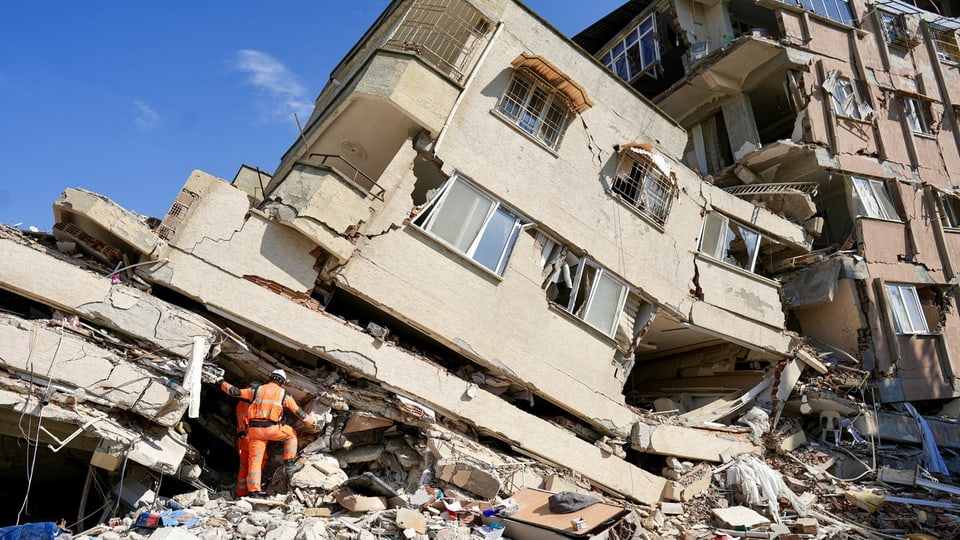The damage due to storms that the furniture insurance company had to pay for was two to six times as high as budgeted in the last three years. But Mobiliar boss Michèle Rodoni is even more worried about top risks such as earthquakes. Such damage would not be covered at all.
SRF News: In Switzerland you can insure pets against illness, household contents, and car insurance is compulsory – but you name so-called top risks that are not insured?
Michèle Rodoni: We see that there are risks that are simply not covered. And we are convinced – as the insurance industry and as Mobiliar – that we need solutions. That’s what we experienced with Covid. The pandemic was a surprise; business and politics had to react very quickly.
We have a solution for earthquakes that could be implemented tomorrow.
We as an insurance company must learn from this that we must prepare proactively. For example, we have a solution for earthquakes that could be implemented tomorrow. The core would be the existing elemental damage pool. This already covers nine risks such as the risk of avalanches or floods. We could simply add earthquakes there.
Isn’t the risk of earthquakes greatest in Valais, Graubünden and Basel?
No. Although the epicenter would probably be there, the consequences could possibly be felt as far away as Geneva or Zurich. Major damage could be caused there. Reinsurers regularly publish such assessments. Accordingly, an extreme earthquake in Switzerland would result in billions in damage. And currently around 85 percent of buildings in Switzerland are without insurance.

Legend:
An earthquake as strong as the one in Turkey and northern Syria a year ago could also cause serious damage in Switzerland.
Keystone/Michael Fichter
In your opinion, would earthquake insurance be mandatory?
This is the only way to keep premiums as low as possible. A partnership is needed between the insurance industry and politics. That is the key to success. The premiums that are charged today for natural hazard insurance are set by the financial market supervisory authority Finma.
Possible cyber attacks are a big issue for our country.
The Federal Council proposes a different type of insurance, a so-called contingent liability. This means that the homeowners would only have to subsequently pay for reconstruction in the event of an earthquake. Do you reject this?
This is a solution that does not correspond to the motto “prevention is better than cure”. Because it is a solution in the worst moment when something happens. We find it better to be proactive, year after year, to ensure resources are available if something happens.
Your industry also lists other major risks that are not covered in Switzerland. For example, cyber attacks or another pandemic. Are you demanding solutions there too?
Possible cyber attacks are a big issue for our country. We advocate that we be proactive here too and create a partnership between the insurance industry and politics. We should prepare – and hope that the attack doesn’t happen.
Does this require a round table?
Yes. Politicians and the insurance industry should sit down at the table and think together about what the best solutions are for Switzerland.
The interview was conducted by Karoline Arn.
